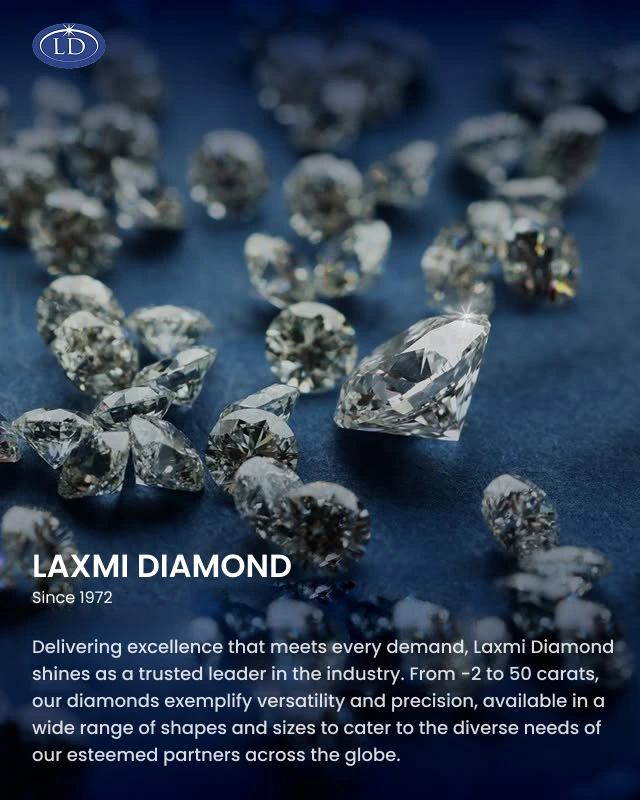
Exploring the sustainable facets of diamonds
Ethical sourcing practices in the diamond industry have far-reaching benefits that extend throughout the entire supply chain and positively impact the environment. When diamonds are ethically sourced, each element of the diamond, from its origin to its journey through the supply chain, undergoes improvements that benefit everyone involved. From the miners who extract the diamonds to the consumers who purchase them, ethical sourcing promotes fairness, transparency, and accountability at every stage. By prioritizing ethical practices, the industry not only uplifts communities and ensures fair wages and working conditions for workers, but also minimises environmental harm. Ethical diamond sourcing helps protect ecosystems and natural resources, ensuring that our planet remains sustainable for future generations. It represents a commitment to responsible stewardship of both human and environmental resources, creating a more sustainable and equitable future for all.

Sustainable impact of ethical sourcing
Ethical sourcing of diamonds has emerged as a pivotal approach to mitigate the environmental impact associated with traditional diamond mining practices. By adhering to stringent environmental standards and sustainable mining techniques, ethical diamond sourcing endeavours to minimize ecosystem disruption, preserve biodiversity, and conserve natural resources. Unlike conventional diamond extraction methods that often result in deforestation, soil erosion, and habitat destruction, ethical sourcing prioritizes responsible land management and reclamation efforts, thereby mitigating the adverse effects on local ecosystems and wildlife habitats. Moreover, ethical diamond sourcing initiatives aim to reduce carbon emissions and energy consumption throughout the mining and production processes, contributing to overall environmental conservation efforts.
Furthermore, ethical diamond sourcing fosters community engagement and empowerment by promoting eco-friendly livelihood opportunities and supporting local conservation initiatives. By investing in sustainable development projects, such as reforestation programs, wildlife conservation efforts, and renewable energy infrastructure, ethical diamond sourcing endeavours to create positive social and environmental legacies in diamond-producing regions. Through collaborative partnerships with local stakeholders, governments, and environmental organizations, ethical sourcing initiatives strive to balance the economic benefits of diamond mining with the imperative of environmental stewardship, ultimately paving the way for a more sustainable and equitable future for diamond-producing communities and ecosystems alike.
Impact of ethical sourcing on the supply chain
Ethical sourcing practices have revolutionized the diamond industry, profoundly impacting its supply chain dynamics. By prioritizing ethical considerations in sourcing diamonds, companies have fostered a more transparent and accountable supply chain. This shift entails rigorous monitoring and verification processes to ensure that diamonds are obtained through fair labour practices and environmentally responsible mining methods. As a result, stakeholders along the supply chain, from miners to retailers, are compelled to uphold higher ethical standards, thereby mitigating the risk of human rights abuses and environmental degradation associated with diamond extraction.

Furthermore, the adoption of ethical sourcing principles has prompted a paradigm shift in consumer behaviour, influencing purchasing decisions and preferences. Informed consumers increasingly demand transparency and ethical integrity in the products they buy, including diamonds. As ethical sourcing gains traction as a market norm, companies that fail to adhere to these standards risk reputational damage and loss of consumer trust. Consequently, ethical sourcing practices not only reshape the operational landscape of the diamond supply chain but also catalyze broader societal shifts towards sustainability and ethical consumption.
Innovative practices in the ethical sourcing of diamonds
Innovative practices in response to ethical sourcing of diamonds have sparked a transformative shift in the diamond industry. With growing awareness of the environmental and social impact of diamond mining, industry leaders are pioneering new approaches to ensure ethical standards are upheld throughout the supply chain. One notable innovation is the emergence of blockchain technology, which enables transparent tracking of diamonds from the mine to the market. By utilizing blockchain, consumers can access detailed information about the journey of each diamond, including its origin, mining conditions, and ethical certifications, fostering trust and accountability in the industry.Furthermore, the rise of lab-grown diamonds represents another innovative response to ethical sourcing concerns.

Lab-grown diamonds are created in controlled environments using advanced technology, eliminating the need for traditional mining practices associated with environmental degradation and human rights violations. These diamonds possess the same chemical composition and optical properties as natural diamonds but are produced in a more sustainable and ethical manner. As consumers increasingly prioritize ethical considerations in their purchasing decisions, the availability and affordability of lab-grown diamonds offer a compelling alternative that aligns with their values while driving positive change in the diamond industry.








